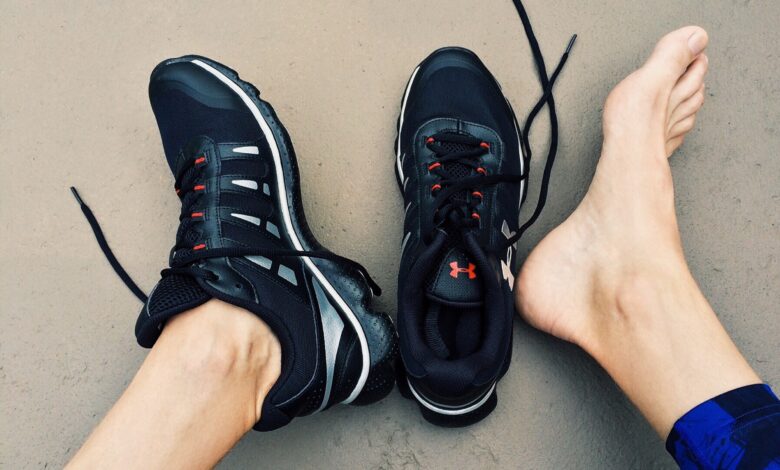8 Reasons for Persistently Cold Feet

It’s common to experience cold feet occasionally, but persistently cold feet could indicate an underlying issue. Cold feet can make life less enjoyable due to the feeling of discomfort and uneasiness it brings. With proper diagnosis and treatment from foot and ankle institute experts, you may be able to relieve some of that discomfort. Here are eight reasons for persistently cold feet:
1. Poor Circulation
When your body cannot deliver enough blood to the foot area, it can result in cold feet. This can be caused by many factors, including a sedentary lifestyle, peripheral artery disease, or diabetes. Exercising can help increase blood flow throughout the body. Wearing compression socks or elevating your feet can alleviate the symptoms associated with poor circulation.
2. Hypothyroidism
The thyroid gland produces hormones that control your metabolism. Hypothyroidism occurs when the thyroid gland fails to produce enough of these hormones. When the thyroid gland is underactive, it may cause the body’s temperature to drop, affecting the temperature of the feet. If you suspect you may have hypothyroidism, seek medical attention from foot and ankle institute experts for a treatment plan.
3. Raynaud’s Disease
Raynaud’s disease affects the blood vessels in the fingers and toes, causing the narrowing of the arteries, which reduces the amount of blood that can get through. This can result in cold toes and fingers, numbness, and tingling sensations. Symptoms may be triggered by cold temperatures or stress. Women are more affected by Raynaud’s disease than men. Ways to treat Raynaud’s disease include medication, lifestyle changes, and behavioral therapy.
4. Chronic Nerve Damage
Nerves are responsible for transmitting messages to and from the brain and body. When nerve damage occurs, this communication is disrupted, leading to numbness and cold appendages. Many factors can contribute to nerve damage, including injury, diabetes, and alcoholism. If you suspect your cold feet are due to nerve damage, see a healthcare provider for an evaluation.
5. Anemia
If you experience cold feet, fatigue, weakness, and constipation, it may be due to anemia. Anemia is when your body has fewer red blood cells to carry oxygen to your body’s tissues. When your body lacks oxygen, it can result in cold, pale skin, including your feet. Treatment for anemia depends on the underlying cause of the condition but may involve dietary changes, iron supplements, and medications.
6. Anxiety and Stress
When we experience anxiety and stress, our body’s sympathetic nervous system kicks into gear, which can trigger a “fight or flight” response. During this response, blood flow is redirected away from your extremities, such as your feet, and towards your organs. This leads to a feeling of coldness. If you suspect your cold feet may be due to anxiety and stress, try relaxation techniques such as deep breathing or meditation.
7. Frostbite
Frostbite happens when our skin and the underlying tissues freeze due to exposure to cold temperatures. Symptoms include pale or bluish skin that feels numb, hard, or cold. While it can affect different body parts, the toes and feet are particularly vulnerable to frostbite due to their distance from the heart and the risk of narrowing blood vessels. If left untreated, frostbite can lead to permanent damage, such as skin breakdown, infection, or even amputation. Dress warmly, avoid prolonged exposure to the cold, and immediately seek medical attention if you experience frostbite symptoms.
8. Certain Medications
Medications can cause or worsen cold feet as a side effect. Beta-blockers used to treat high blood pressure and heart disease can decrease blood flow to the feet and hands, making them feel cold and numb. Medications for migraines, depression, and anxiety can also have a similar effect. If you’re experiencing cold feet and taking any of these medications, speak to your doctor about possible alternatives or dosage adjustments. You should not stop or change your medication without consulting your healthcare provider, as it can lead to serious complications and withdrawal symptoms.
Find a Foot and Ankle Institute Today
Cold feet can interfere with your daily activities and overall quality of life. The causes range from normal reactions to more severe health conditions. To resolve this issue quickly and accurately, contact a local foot and ankle specialist for diagnosis and treatment assistance. Their expertise can help provide much-needed relief from cold feet. If your cold feet persist, seek care from an experienced provider at a certified foot and ankle institute today.
Read More About The Post Point




